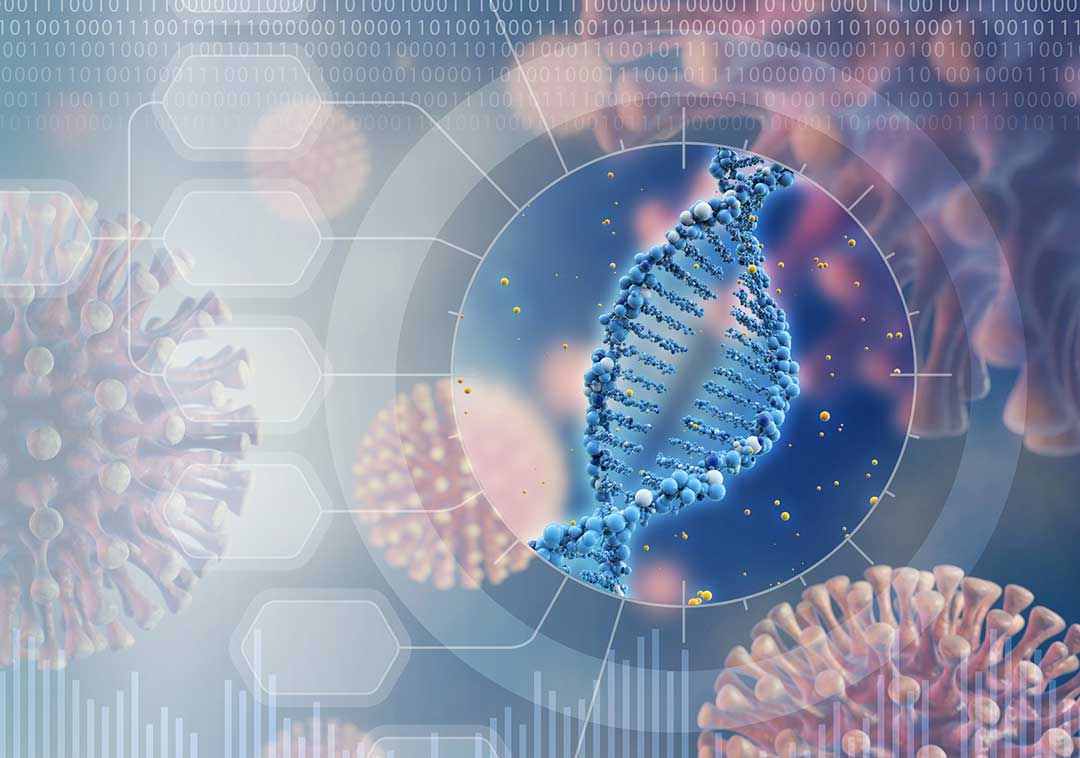New strains of the virus causing COVID-19 could impact clinical laboratory tests, says expert
In recent months, new strains of SARS-CoV-2 have gained widespread attention by both the public and medical community. Specifically, the B.1.1.7. variant that first became prevalent in the United Kingdom, has gained notoriety for its increased transmissibility over the strains of SARS-CoV-2 that were circulating for most of 2020.
As new strains of SARS-CoV-2 become more prevalent, the impact that these strains will have on clinical laboratories is a prominent question. The US Food and Drug Administration (FDA) issued an alert to clinical laboratory staff in early January addressing the potential impact that a new SARS-CoV-2 variant would have on existing testing methods and suggesting potential measures that clinical labs could consider (See FDA Issues Alert to Clinical Laboratories About the Effects of New SARS-CoV-2 Variant on Testing).
To better understand the implications that new SARS-CoV-2 variants could have for clinical laboratories, the COVID-19 STAT Intelligence Briefings Service recently spoke with Joel Lefferts, PhD, HCLD, DABCC. Lefferts is Associate Professor of Pathology and Laboratory Medicine at Geisel School of Medicine at Dartmouth and is the Assistant Director of Clinical Genomics and Advanced Technology (CGAT) at Dartmouth-Hitchcock Medical Center (DHMC). Lefferts first explored variants with STAT COVID-19 back in August 2020 when he discussed mutations that were being observed in SARS-CoV-2 strains at that time (See Dartmouth Researcher Discusses the Implications SARS-CoV-2 Mutations will Have on Testing by Clinical Laboratories).

Considering New COVID-19 Strains and Disease Outcomes
The biggest point that Lefferts now emphasizes for clinical laboratories about the new strains of SARS-CoV-2 is that there is currently no evidence that these strains lead to different disease outcomes. “My general impression right now with variants like the B.1.1.7. in circulation, is that we definitely have a lot of interest in the community of providers, wondering if any of their patients that have tested positive for SARS-CoV-2 might have that variant,” Lefferts told STAT COVID-19.
“Our take on it is that it’s not clinically relevant at this point,” Lefferts said. “It’s definitely a very interesting question for epidemiologists because of the implications of that strain being more transmissible. For the clinical labs, however, there is not a lot of value in identifying specific patients with that variant.” Lefferts did, however, warn that our understanding of new strains is only just starting to develop and that as more research becomes available, our knowledge of the implications these strains have on disease course could change.
One significant consideration with new strains has been if mutations will interfere with existing treatments. “There’s definitely a theoretical connection,” Lefferts said, emphasizing that this connection is not known. “There may be potential for the vaccine to be less effective against variants and strains with mutations within the S gene. That’s a research question that would be interesting to investigate. SARS-CoV-2 sequencing efforts could be focused on samples from individuals who have been vaccinated and then become infected despite that vaccination; finding trends in particular strains or mutations within this group of patients would be extremely informative.”
Role of Genomic Surveillance of Coronavirus
On how these new strains might affect testing, Lefferts described both positive and negative impacts. “One thing that has been interesting is that some of the labs using assays that target the S gene have the potential to use those assays as a surveillance tool for the B.1.1.7. strain,” Lefferts explained. “The TaqPath assay has three targets, one of them being the S gene. If a deletion of the six nucleotides within the S-gene coding for amino acids 69 and 70 is present, the S-gene target is not detected but the other targets are. Initially, this S-gene dropout was concerning as a potential source of false-negative or equivocal results. Now that we know what this S-gene dropout means, we can use it as a screening tool for cases that might be the B.1.1.7. This deletion is not exclusive to B.1.1.17 so we have to be careful that we don’t assume a case with S-gene dropout is B.1.1.7”
While some PCR tests can detect indicators of new strains, the downside is that some variants may, in theory, eventually fail to be detected by some assays. “That’s why viral genomic sequencing is important—so we can continue to see what’s out there and compare those sequences against the primer and probe sequences for the assays that have published sequences for their primers and probes,” Lefferts said. “I don’t think it’s a huge concern right now, since most assays have multiple targets. With the S-gene deletion that interferes with the one target, you have the other two as backup, which is the purpose of having multiple targets in one assay.
“As time goes on, there’s definitely a possibility that you could see additional mutations being selected or just arising in the population that could potentially go undetected by some of the assays out there,” Lefferts warned. “I am unaware of that happening so far, but it’s something we definitely need to keep our eye on.”
New Considerations for Repeat Clinical Laboratory Testing for COVID-19
There are no variants that are currently known to evade existing assays. Therefore, finding these variants would initially be challenging. Lefferts suggests that clinical laboratories consider repeat testing using different assays for cases that are still very suspicious for COVID-19 despite negative test results.
New variants could be a concern for clinical laboratories due to interference with diagnostic tests; however, only a few actually pose any increased risks. “B.1.1.7. is definitely the big one right now, due to its increased transmission rates,” Lefferts explained. “There’s the South African strain as well, but it hasn’t been detected in the US to date. Another strain with some sequence similarities to the UK and South African strains has been identified in Brazil and could be of concern as well.”
While the South African strain, also known as B.1.351., had not been detected in the United States at the time of STAT COVID-19’s interview with Lefferts, the first case in the US was announced less than 24 hours later, highlighting the rapid spread of new strains across the world. As these new strains become prevalent, clinical laboratorians must keep up to date with emerging information of these strains and how they could affect existing assays.

—By Caleb Williams, Editor, COVID-19 STAT
Related Resources:






